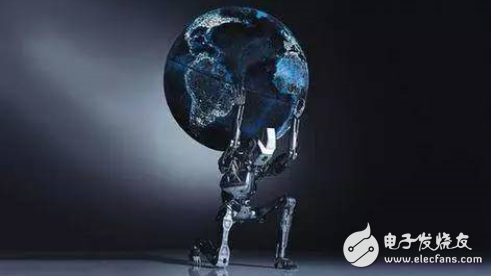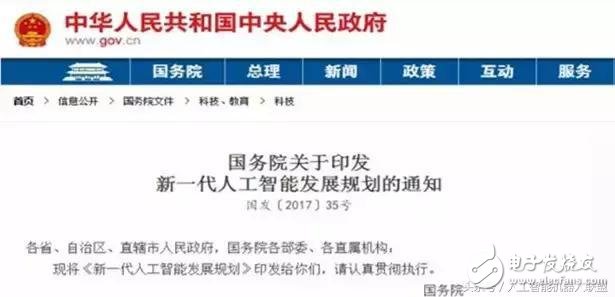The artificial intelligence industry interprets this sentence
"What is the most expensive 21? Talent!" – This famous line from Ge You in *The World Without Thieves* has deeply resonated with AI company CEOs, highlighting the growing importance of skilled professionals in the field.
Miss C has been working in a headhunting firm in Shanghai for two years. She isn’t technically trained, but after the 2017 Spring Festival, she transitioned into sourcing AI talent. “The market demand is massive,†she says. “Whether it's startups or big companies, the need for technical talent is urgent.â€
An algorithm engineer with over three years of experience can earn between 300,000 and 800,000 yuan annually. Startups often offer even higher salaries to attract talent due to their limited resources. Miss C maintains a detailed salary list, considering factors like equity and bonuses. In contrast, senior AI engineers at BAT companies typically earn between 300,000 and 500,000 yuan per year. A Shenzhen-based startup, even before securing funding, offered an annual salary of 650,000 yuan, while a well-known shared bike company once advertised a top salary of 800,000 yuan.

There aren’t many universities offering direct AI programs. Many students come from related fields like computer science, communications, or mathematics. Others are transitioning from different tech roles, which takes time to become fully proficient. Miss C is deeply aware of the talent shortage. Many Python web developers have switched to AI companies just for better pay.

State Council: Setting up artificial intelligence courses in primary and secondary schools
The competition in AI has been elevated to a national strategy level—should we be surprised? Probably not. To achieve this goal, the Party Central Committee and the State Council have officially announced plans to introduce AI courses from primary education through university levels, aiming to build a strong talent pipeline.
Recently, the State Council released the *New Generation Artificial Intelligence Development Plan*, which mandates that AI-related courses be introduced in primary and secondary schools starting this fall. It also promotes programming education. In the context of a severe talent shortage and high salaries, this signals a long-term shift in educational focus.

Primary and secondary schools will offer AI courses to promote programming education
The plan clearly states that AI has become a key area of international competition. It calls for the gradual development of a national AI education program, including AI courses in primary and secondary schools, as well as the promotion of programming education.
In addition, the plan encourages social participation in developing teaching software and promoting AI competitions. It emphasizes making AI education both fun and engaging, as complex programming languages may not easily capture the interest of young students.
According to the 2017 Compulsory Education Science Curriculum Standards, science education in primary schools has been strengthened, with science classes beginning in first grade. Schools are required to allocate at least one class per week for grades 1 and 2, while maintaining the same number of classes for grades 3 to 6.
Older generations are already feeling the pressure: “Even if you're the king, you can't compete with a child who knows more about AI than you.â€
But AI is a complex subject, not easy even for college students. Advanced topics like deep learning are typically studied at the master’s or doctoral level. Getting children interested in AI remains a major challenge.
Artificial intelligence is the biggest outlet
“Those with more than five years of experience rarely post their resumes online. People with over three years of experience are considered scarce resources by top headhunters,†says Miss C. After half a year of job-hopping, she still hasn’t met her and her company’s expectations.
Liang Zhien, CEO and CTO of Yunzhisheng, recalls the mobile internet boom when Android and iOS developers were in high demand. “People without coding skills could earn over 5,000 yuan a month after a crash course. But the apps they made weren’t great. Most were still developed by big companies.â€
Yunzhisheng specializes in intelligent speech recognition technology, used in smart homes, cars, and medical devices. Its AI research team consists mostly of master’s and PhD holders, with over 45% being doctors. Hiring such top talent comes at a high cost. “Cloud knowledge accounts for over 70% of our operating costs,†Liang says.
This isn’t the first time AI has captured attention. The concept has existed for 60 years, with ups and downs. But in recent years, the technology has finally advanced enough to enter the “weak AI†stage.
In July 2017, Shangtang Technology raised $410 million in Series C funding, setting a global record for AI financing. Another company, Argo AI, received $1 billion from Ford. In 2017, 40% of AI funding went to these two companies alone.
While startups raised $3.6 billion in AI-related funding, it pales in comparison to the investments from big tech giants. A McKinsey report titled *Artificial Intelligence, The Next Digital Frontier* noted that in 2016, companies like Baidu and Google invested between $20 billion and $30 billion in AI.
Ninety percent of this investment went into R&D, with 10% allocated to acquisitions. Robotics and speech recognition were the most popular areas. At the 2017 Baidu Developer Conference, Baidu acquired KITT.AI, a voice wake-up provider. Google also bought Boston Dynamics, known for military robots.
So why aren’t big companies investing more in hiring talent?
At the Tianjin World Intelligence Conference, Ma Yun called on China’s top scientific institutions to grant technical talents academician titles, boosting their appeal to enterprises.
Money isn’t the only solution. While capital inflow and M&A activity have increased, the talent gap remains a major obstacle. Public perception now sees AI as a potential bubble.
At Lagou.com’s four-year event, CEO Ma Delong highlighted the growing demand for AI talent. “In the past six months, AI has seen the fastest growth in job demand, with a 2.4-fold increase compared to 2016.â€
LinkedIn China’s *Global AI Talents Report* shows that AI talent demand is rising rapidly, with basic-level researchers—such as those in deep learning, machine learning, algorithms, and neural networks—being the most sought-after.
Fiber Optic Attenuator, Fiber Optic Attenuators, Fiber Optic Adapter Hybrid Attenuator, SC Optical Fiber Attenuator, FC Optical Fiber Attenuator
NINGBO YULIANG TELECOM MUNICATIONS EQUIPMENT CO.,LTD. , https://www.yltelecom.com
